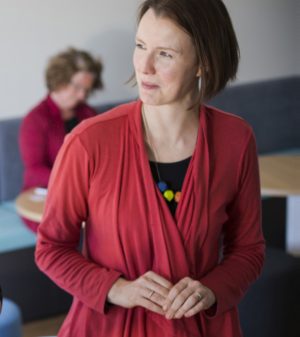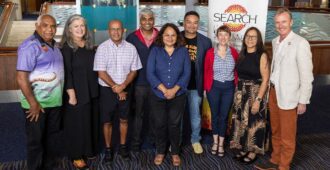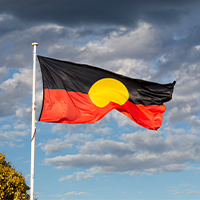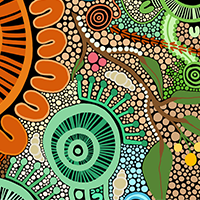
An Australian-first study exploring the mental health trajectories of urban Aboriginal children will help lay the groundwork for evidence-informed policies and programs to improve mental health care for all Aboriginal children, says lead researcher Dr Anna Williamson.
The new study, funded by a $160,000 grant from the Financial Markets Foundation for Children, looks at the social and emotional wellbeing of 1600 NSW urban Aboriginal children aged 4‒17 years and their families, who are a part of the longitudinal Study of Environment on Aboriginal Resilience and Child Health (SEARCH).
SEARCH is an active partnership between the Sax Institute, the Aboriginal Health & Medical Research Council and four Aboriginal Community Controlled Health Services (ACCHSs ) that is following the social and emotional wellbeing of the children over time and where health services set the research priorities and guide how data is collected. It aims to not only understand the causes of health and disease among urban Aboriginal children and their families, but most importantly, to use this information to drive real improvements in services and outcomes for urban Aboriginal people.
The new research project will look at patterns of mental health service use and other influencing factors over a five-year period, Dr Williamson said.
She said SEARCH data had already indicated that 26% of urban Aboriginal children were at high risk of problems with social and emotional wellbeing ‒ twice the rate found among the general population of children.
“This grant enables us to take the next step, to provide the first-ever longitudinal data on what actually occurs in relation to the mental health of Aboriginal children, and the predictors of it getting better or worse,” she said.
“We currently have no information on the proportion of Aboriginal kids that need mental health services, whether they are getting those services and, for example, whether children who are hospitalised after a suicide attempt get follow-up care.”
Closing the gap
The new study was designed to provide the evidence needed to inform services, policies and programs designed to improve the mental health of Aboriginal children, Dr Williamson said
While there were anecdotal reports that Aboriginal children were sometimes unable to access mental health services in the community, the study will draw on interviews with children and carers as well as analysis of linked Medicare and hospitalisation data to reveal a full picture of Aboriginal children’s mental health trajectories.
“It is really important from a policy point of view to have evidence to show whether services are available and what impact they are having on outcomes,” she said.
And she said filling gaps in evidence was a step towards closing the gap in health outcomes between Indigenous and non-Indigenous Australians.
“If we seriously want to close the gap, it all starts with ensuring children have good mental health.”
Find out more
- Read about SEARCH
- Find out more about Financial Markets Foundation for Children
- Read a recent paper from SEARCH about mental health in children.




